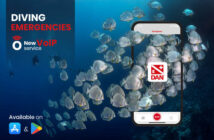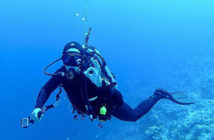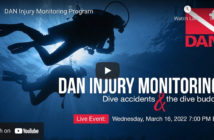Summer is fast approaching here in New Zealand, which means more people in the water enjoying the beautiful coastline and lakes whilst exploring their favourite dive sites.
Everyone knows to ‘slip slop slap’ when the sun comes out but what about dive safety? Now is a great time for divers to step back for a moment before the summer holidays and review their dive safety.
What’s the risk of an accident happening?
There have been 32 underwater drowning deaths in the period 2011-2015 in New Zealand; 14 whilst scuba diving, 9 snorkelling and 9 freediving according to Water Safety New Zealand records. Whilst there are unavoidable risks associated with scuba diving and divers accept accidents can and do happen, those risks can be minimised with some simple considerations:
- Keep your buddy close
- Check dive kit regularly
- Plan dives thoroughly
That is all simple, standard and effective advice divers learn early on in their training. There is however more that can and should be done to help ensure safe dives. Check out our Top Tips for Safe Dives for some more easy ways to improve dive safety.
What about dive insurance? Are all policies the same?
Choosing the right insurance is also important for dive safety and can be overwhelming with the multitude of options available online. Most travel insurance companies offer standard travel policies with an add-on to include scuba diving but check the fine print before purchase. Not all policies are the same and have various restrictions on maximum dive depth and indicate whether divers need to be accompanied by an instructor/dive centre staff or a dive buddy to be fully insured.
Different companies and their policies also have variable limits for medical expenses and accident cover. Given dive accident medical care can be very expensive, it is important to check the policy limits and choose accordingly.
Diving insurance isn’t just about going on holiday and having good, year-round cover at home is equally as important. DAN Asia Pacific not only provide insurance policies tailored for divers but also have great resources for diving safety, accident reviews and a newsletter containing the latest DAN community news.
I’m insured. Can I just put my policy away and forget about it?
Divers can put their policy documents away in a safe place but we recommend keeping the following information with dive kit when diving on holiday and at home:
- Dive insurance emergency contact number and membership number
- Family emergency contacts
- Emergency services numbers
- Nearest decompression chamber contact numbers and address
If an accident happens, it will save precious time keeping that information close to hand.
A common mistake made by divers is accidentally exceeding depth limits, especially as a new diver learning to master buoyancy. Divers should always remain within the depth range they are both qualified and insured for. If a diver exceeds their maximum depth limit and has an accident their insurance policy will likely be void, leaving the diver with a potentially expensive medical bill to pay.
Don’t be that diver, even if it does mean missing out on chasing a nearby shark spotted at depth.
I want to help other divers. What can I do?
Divers interested in looking after the safety and wellbeing of other divers can go one step further and become a qualified PADI Rescue Diver. This popular, fun and interesting course is a great way to improve dive safety, learn first aid for divers and how to assist a diver in distress. It is also a great way to review dive knowledge and improve confidence in the water.
The New Zealand Underwater Association collects, analyses and reports on diving incidents and accidents to monitor trends and help improve diver safety alongside DAN. Diving incidents can be reported confidentially to the NZUA here.









